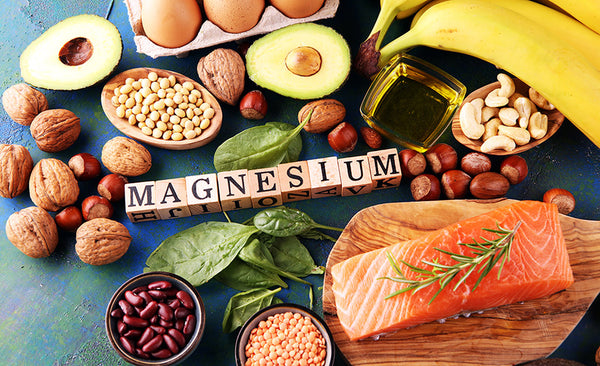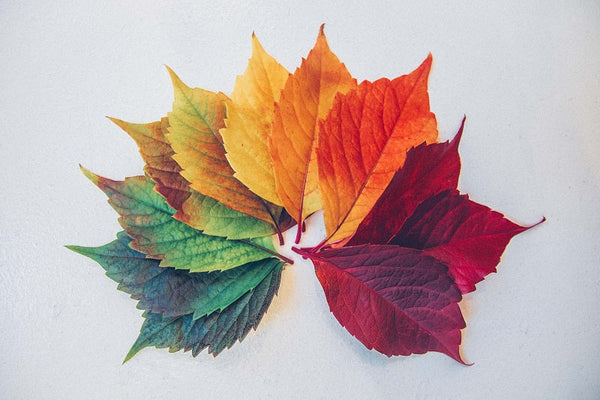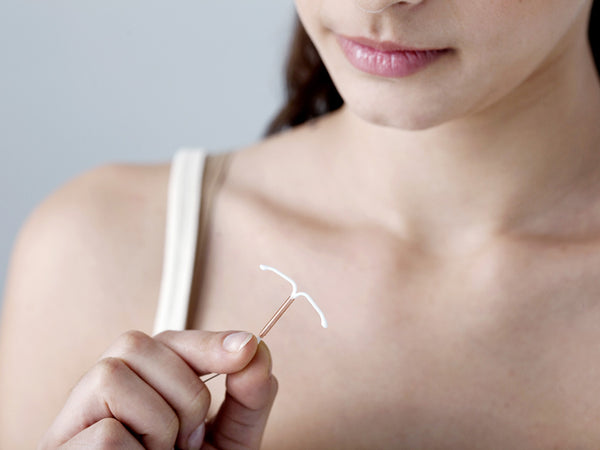
Natural Solutions for Heavy Menstrual Bleeding
Heavy menstrual bleeding or menorrhagia can be due to any of three major causes:
- low progesterone or “unopposed” oestrogen
- endometriosis or adenomyosis
- thyroid disease
If your doctor tells you that your heavy periods are due to hormone imbalance, most likely it’s because you’re not ovulating. Women with anovulatory cycles don’t produce the progesterone needed to thin the uterine lining and prevent heavy periods. As a result, you have oestrogen that’s “unopposed” by progesterone and that’s the main reason why you develop a thickened uterine lining and bleed more.
In a lot of cases, women with endometriosis also experience heavier than usual menstrual bleeding since the body has more tissue to shed. They’re also more susceptible to menstrual cramps and their periods may last longer.
The thyroid gland helps control your menstrual cycle and variations in thyroid hormone levels can make your period lighter, heavier, or irregular. If your thyroid-stimulating hormone (TSH) level is higher than 3 mIU/L, it could be a sign of subclinical hypothyroidism (underactive thyroid). Longer periods with a heavier flow and more cramping may be a sign of an underactive thyroid where thyroid hormones are in short supply.
If you’ve suffered heavy periods most of your life, it’s also advisable to get screened for coagulation disorders such as von Willebrand disease, a genetic disorder caused by a missing or defective clotting protein. The condition accounts for up to 20 % of all cases of heavy menstrual bleeding but is often left undiagnosed.
Start with ibuprofen if you want a quick and easy fix during your period. It reduces menstrual flow by half, so it’s a good first step while you work on the other long-term treatments. Take ibuprofen on your heavy days, preferably with food to decrease the risk of stomach irritation.
How heavy is “heavy”?
A normal bleed is anywhere up to 80 mL (millilitres) during your entire menstrual period. One soaked regular pad or tampon holds 5 mL, while a super tampon holds 10 mL. If you fully soak up 16 regular pads or tampons (or 8 super-tampons), you’re still within the normal range.
Heavy bleeding is losing a lot more than 80 mL during your period. Some women report losing up to 500 mL (2 cups) of blood, which can be quite frightening. For some, this can mean blood-soaked clothing, a serious iron deficiency, or even a trip to the hospital.
Heavy periods can occur at any age, but they’re more common during adolescence and perimenopause. For both age groups, heavy bleeding is usually the result of too much oestrogen (which thickens the uterine lining) and not enough progesterone (which reduces the uterine lining).

Natural solutions for heavy periods during adolescence
Heavy bleeds are usually temporary during adolescence because oestrogen receptors are quite sensitive for the first year or two of getting your period. Oestrogen receptors become less sensitive over time and periods become lighter. Menstrual bleeds also lighten when teenage girls begin to ovulate more regularly and make more progesterone.
Here are some simple ways to reduce heavy menstrual flow during the teenage years:
- You can reduce menstrual flow by half with conventional anti-inflammatories such as ibuprofen (Advil or Nurofen). The recommended dose is 200mg every 6 hours during the first couple of days of bleeding. While ibuprofen isn’t really a natural treatment, it’s a more sensible and practical solution. Two days of taking ibuprofen each month is a lot safer compared to oral contraceptives (which is the standard medical solution for teens).
-
Turmeric is also quite valuable in reducing heavy menstrual flow. Take it daily throughout the month and not just during your period.
-
Avoid products made from cow’s milk to reduce inflammation and lighten menstrual flow. Avoiding dairy completely really works for a lot of young women but it could take a couple of months to notice the benefits. A2 milk (like Jersey, goat, and sheep) is usually a better alternative.
- Supplement with iron. Persistent heavy menstrual bleeds can cause iron deficiency and iron deficiency worsen heavy periods. Opt for good quality, gentle-chelated iron supplement (like ferrous bisglycinate) and take 15-50mg after your evening meal.
Natural solutions for heavy periods during perimenopause
Perimenopausal heavy periods are a more serious matter compared to the temporary heavy bleeds of the teenage years. Without treatment, they can get even heavier and heavier as you approach menopause.
Natural treatments for heavy periods during perimenopause include all of the previously mentioned solutions as well as the following:
-
Get a medical diagnosis first and foremost. While the heavier-than-usual flows are often due to anovulatory cycles, there’s a need to rule out issues like infection, endometriosis, clotting disorders, adenomyosis, uterine polyps, and fibroids. Fibroids are benign growths in the muscle wall of the uterus which are common during perimenopause and often occur in women who also report very heavy bleeding. However, they are rarely the actual cause of heavy bleeding.
-
Identify and treat underlying thyroid disorders. Issues associated with an underactive thyroid like Hashimoto’s can cause heavy periods so it’s best to address thyroid problems as well.
-
Enhance the detoxification of oestrogen. Since oestrogen is normally cleared through your liver and bowel, it’s important to maintain optimum gut health. Avoid alcohol and antibiotic use since both can damage healthy gut bacteria. Supplementing with Vit B6 and Calcium D-Glucarate (CDG) can also further enhance oestrogen detoxification.
- Phytoestrogens such as nuts, soy, and flaxseed can help reduce heavy menstrual flow. Phytoestrogens compete with stronger endogenous oestrogens and therefore reduce oestrogen stimulation of the uterine lining.
-
Add more iodine-rich foods to your diet. Iodine down-regulates estrogen receptors in the breasts and uterus and reduces the thickness of the uterine lining.
-
Keep your insulin level low. Heavier menstrual flow is common among overweight women and those with insulin resistance. Insulin tends to thicken the uterine lining so it’s advisable to avoid sugar to reduce heavy menstrual bleeds.
- Natural progesterone. Synthetic progestin is the standard medical treatment for heavy menstrual bleeds. It’s commonly administered as a medroxyprogesterone tablet or levonorgestrel released from an IUD. A more viable alternative to these synthetic progestins is natural progesterone in the form of a capsule such as Prometrium. Topical progesterone creams such as Emerita also work well as they’re easily absorbed into the bloodstream. These natural progesterone alternatives help thin the uterine lining with far fewer side effects.
Conventional treatments for heavy periods
Hysterectomy
For many decades, the surgical removal of the uterus has been the standard medical treatment for heavy bleeding. It may still be necessary in a number of cases but I encourage these women to only undergo a hysterectomy as a last resort. A hysterectomy may have long-term effects which include urinary incontinence, vaginal prolapse, reduced sexual response and hormone imbalance.
Progestin-secreting IUD
Intrauterine devices such as Mirena contains the hormone progestin which decreases menstrual flow by as much as 90 per cent. Very small doses of the synthetic progestin levonorgestrel are delivered directly to the uterine lining and while some of it enters the bloodstream, it’s only about a tenth compared to most oral contraceptives. Mirena can, however, cause acne or depression.
Endometrial ablation
Endometrial ablation is the surgical scraping or destruction of the uterine lining to stop or reduce heavy menstrual bleeding. While the procedure is effective, around 20 % may require a repeat procedure or experience pelvic pain. It isn’t recommended for those who wish to have children in the future.
I included these three conventional treatment methods because they can sometimes be required despite all your best efforts to treat heavy periods the natural way. Keep in mind that it’s never a failure on your part to resort to conventional treatments because nobody has to put up with heavy periods for a long time. I only wish to point out that it’s worth exploring natural treatments FIRST since they just might work.
If you’re experiencing heavy bleeding or any irregularities in your menstrual cycle, I encourage you to take our FREE Hormonal Assessment to get to the bottom of your problem. We have a team of experienced naturopaths who can guide you through natural treatment methods that have worked for thousands of women over the past decade!























